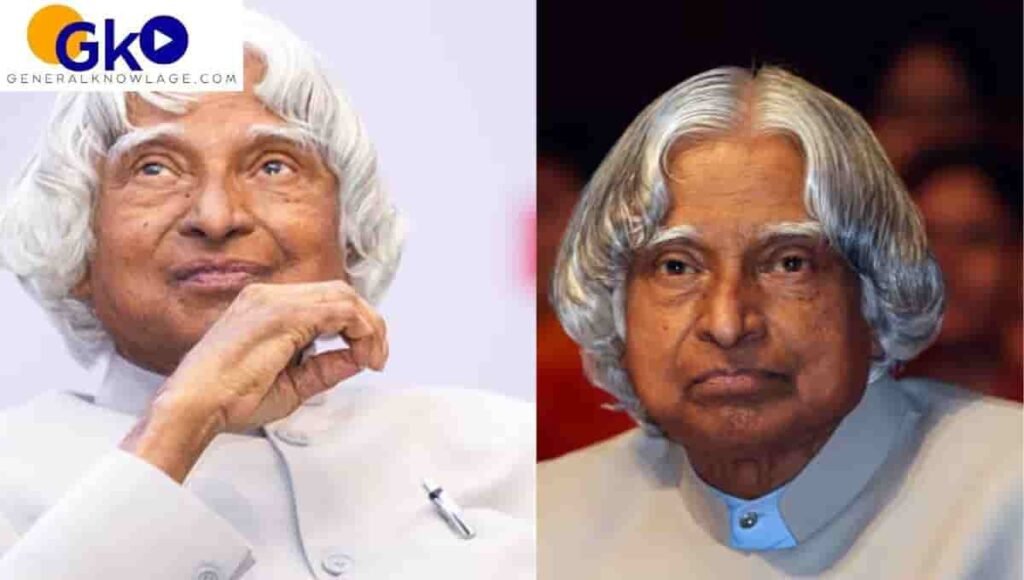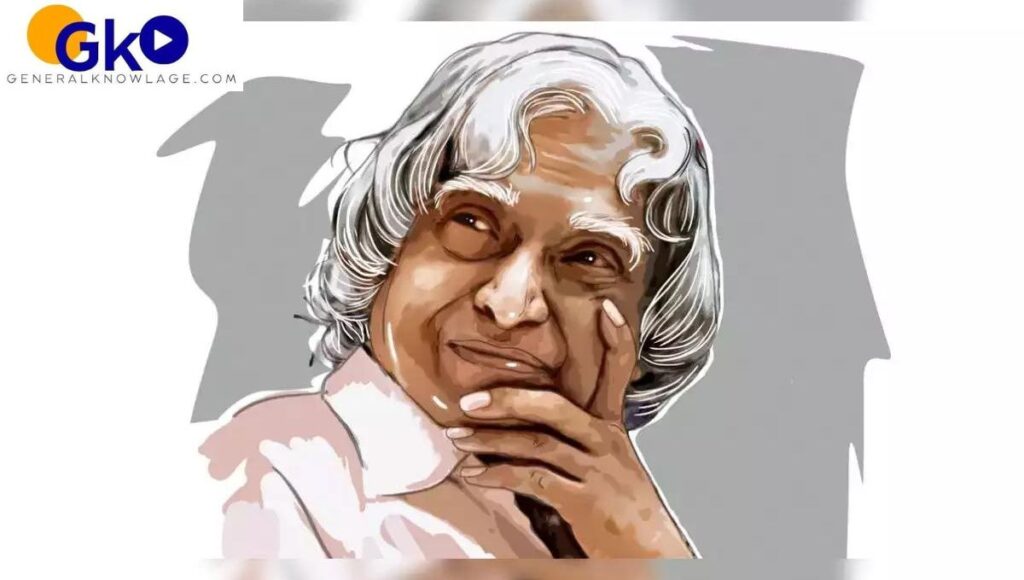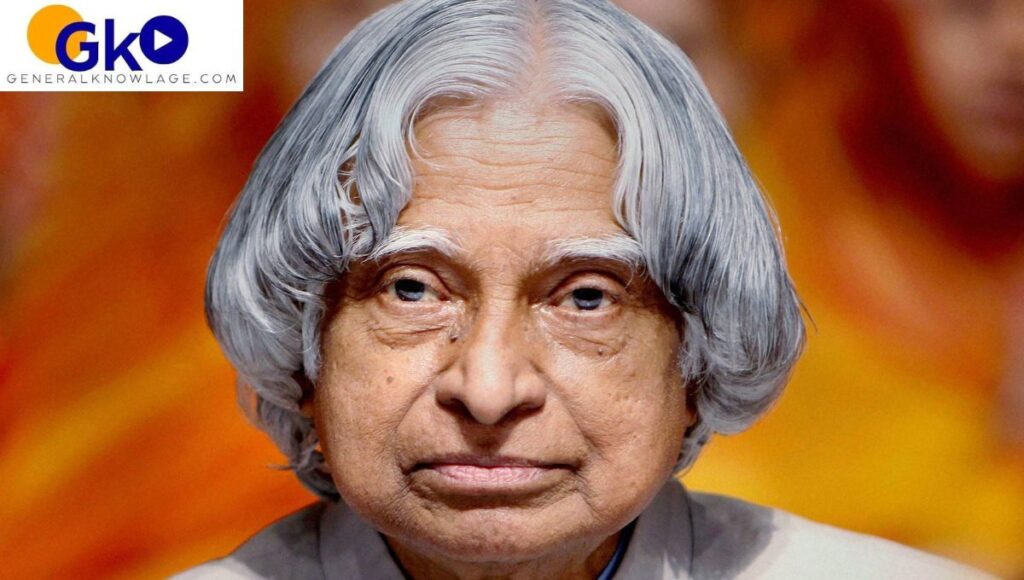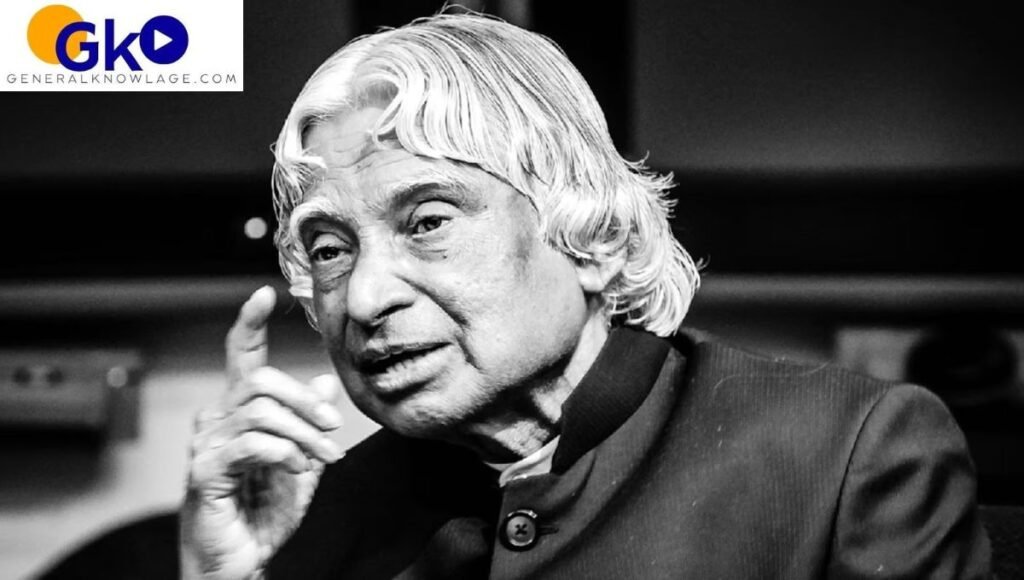APJ Abdul Kalam Biography for School project, Biography PDF, Full Name, Quotes, Achievements, Death date
APJ Abdul Kalam Biography for School project, Biography PDF, Full Name, Quotes, Achievements, Death date – APJ Abdul Kalam was a remarkable figure in Indian history, renowned for his contributions as a scientist and as the 11th President of India. Fondly known as the “Missile Man of India,” he left an indelible mark on the nation through his work in aerospace engineering and his vision for India’s future. This biography explores the life and achievements of this extraordinary individual.

APJ Abdul Kalam Early Life
Born on October 15, 1931, in Rameswaram, Tamil Nadu, APJ Abdul Kalam hailed from a humble background. His father, Jainulabdeen, worked as a boat owner and the local mosque’s imam, while his mother, Ashiamma, took care of the household. Despite financial constraints, Kalam’s family provided him with a nurturing environment. As the youngest of five siblings, he learned the value of hard work and perseverance from an early age.
APJ Abdul Kalam Education Qualification
Although Kalam was an average student in school, he possessed a deep-seated passion for learning. He excelled in mathematics and dedicated countless hours to mastering the subject. After completing his primary education, he attended Schwartz Higher Secondary School and later enrolled at Saint Joseph’s College in Tiruchirapalli. In 1954, he graduated with a degree in physics. Determined to pursue his academic interests further, Kalam moved to Madras to study aerospace engineering at the Madras Institute of Technology.
APJ Abdul Kalam Family Background
Kalam’s family played a crucial role in shaping his values and aspirations. Despite their modest means, they instilled in him a strong sense of integrity and perseverance. His parents’ unwavering support fueled his ambition to succeed, and he remained deeply connected to his family throughout his life.
APJ Abdul Kalam Relationships
While Kalam devoted much of his life to his work, he also valued relationships deeply. He maintained close ties with his family and cherished the friendships he formed over the years. Despite his busy schedule, he always made time for those he cared about, demonstrating kindness and compassion in his interactions.

APJ Abdul Kalam As a Scientist
Kalam’s career as a scientist began in 1958 when he joined the Defence Research and Development Organisation (DRDO). His expertise in aerospace engineering led to significant advancements in India’s missile technology. He played a pivotal role in projects such as the SLV-III, India’s first satellite launch vehicle, and the Integrated Guided Missile Development Programme (IGMDP). Throughout his career, Kalam remained committed to advancing India’s scientific capabilities.
APJ Abdul Kalam Missile Man of India
Kalam’s contributions to India’s missile program earned him the title of “Missile Man of India.” His leadership and innovation propelled the country’s defense capabilities to new heights. Under his guidance, India successfully conducted the Pokhran-II nuclear tests in 1998, establishing its position as a nuclear power. Kalam’s visionary approach to technology and his dedication to national security cemented his legacy as one of India’s foremost scientists.
APJ Abdul Kalam President
In 2002, Kalam was elected as the 11th President of India, serving until 2007. As President, he endeared himself to the public with his humility and accessibility, earning the nickname “People’s President.” Despite his ceremonial role, Kalam remained committed to promoting education and empowering India’s youth. He used his platform to inspire millions of young people, urging them to pursue their dreams and contribute to the nation’s progress.

APJ Abdul Kalam Awards and Achievements
Throughout his illustrious career, Kalam received numerous awards and accolades for his contributions to science and society. He was honored with prestigious awards such as the Padma Bhushan, Padma Vibhushan, and Bharat Ratna, India’s highest civilian honors. Additionally, he received international recognition for his achievements, including honorary doctorates from 40 universities and the prestigious Hoover Medal from the ASME Foundation, USA.
| Year | Award | Organization |
| 1981 | Padma Bhushan | Government of India |
| 1990 | Padma Vibhushan | Government of India |
| 1997 | Bharat Ratna | Government of India |
| 1997 | Indira Gandhi Award for National Integration | Government of India |
| 1998 | Veer Savarkar Award | Government of India |
| 2000 | SASTRA Ramanjun Prize | Shanmugha Arts, Science, Technology & Research Academy |
| 2013 | Von Braun Award | National Space Society |
APJ Abdul Kalam Books
Kalam was also a prolific author, writing several inspirational and educational books throughout his life. His works, including “Wings of Fire” and “Ignited Minds: Unleashing the Power within India,” continue to inspire readers around the world. Through his writing, Kalam shared his vision for India’s future and encouraged others to strive for excellence.
APJ Abdul Kalam Youth
Kalam had a profound impact on India’s youth, inspiring countless individuals to pursue their passions and make a difference in the world. His humility, wisdom, and dedication to serving others resonated with young people across the country. Through initiatives like the “Ignite” program, he encouraged innovation and entrepreneurship among India’s youth, fostering a culture of creativity and excellence.

APJ Abdul Kalam Death
On July 27, 2015, Kalam passed away while delivering a lecture at the Indian Institute of Management in Shillong. His sudden demise was mourned by people across the nation and beyond. Kalam’s funeral, held with full state honors, was attended by dignitaries and ordinary citizens alike, reflecting the profound impact he had on society.
Biography of Apj Abdul Kalam for Class 9
APJ Abdul Kalam Facts
- Kalam was the first scientist to serve as India’s President.
- He was a vegetarian and an advocate for sustainable living.
- Despite his busy schedule, Kalam made time for hobbies such as playing the veena and writing poetry.
- He never married and dedicated his life to serving the nation and promoting education.
Conclusion
APJ Abdul Kalam’s life is a testament to the power of determination, integrity, and service. From humble beginnings to international acclaim, he remained true to his values and dedicated himself to advancing science and inspiring others. His legacy continues to inspire millions, and his vision for a prosperous and inclusive India lives on. APJ Abdul Kalam will always be remembered as a visionary leader and a beacon of hope for generations to come.
Also, Read
- Ashok Chavan Wiki, Wikipedia, Twitter, MLA, Son, Resignation, Constituency, Resign, Family, Age, Father
- Soumya Vishwanathan Wikipedia, Wiki, Journalist, Story, Sister, Father, Verdict, Father, Video
- Tehseen Poonawalla Education, Wikipedia, Wiki, Bigg Boss, Wife, Brother, Net Worth, Congress, Religion
Why was APJ Abdul Kalam famous?
APJ Abdul Kalam became famous for his incredible work in science and technology, especially for his contributions to India’s missile and space programs. He was nicknamed the “Missile Man of India” because of his crucial role in developing ballistic missiles and launch vehicle technology. Additionally, he played a significant part in organizing India’s Pokhran-II nuclear tests in 1998.
Did APJ Abdul Kalam get married?
No, APJ Abdul Kalam never got married. When asked about it, he explained that he chose not to marry because he wanted to dedicate his entire life to serving his country. He believed that marriage and having children might distract him from his mission to serve the nation.
What did APJ Abdul Kalam do for India?
APJ Abdul Kalam made significant contributions to India’s scientific and political landscape. He played a crucial role in developing India’s missile and nuclear weapons programs, establishing the country as a leader in technological advancement. Additionally, he served as the President of India from 2002 to 2007, where he continued to inspire and empower the nation.
Did Abdul Kalam have kids?
No, Abdul Kalam never married and did not have children of his own. However, he treated every child he encountered as his own, showing care and affection towards them. This reflects his deep love for children and his commitment to nurturing the younger generation.
How many hours does Abdul Kalam sleep?
Abdul Kalam followed a disciplined routine, starting his day at 4 am and ending it at 11 pm. Despite his busy schedule, he managed to get around 5 hours of sleep each night. This dedication to his work and his commitment to his vision for India’s future characterized his exemplary life.

